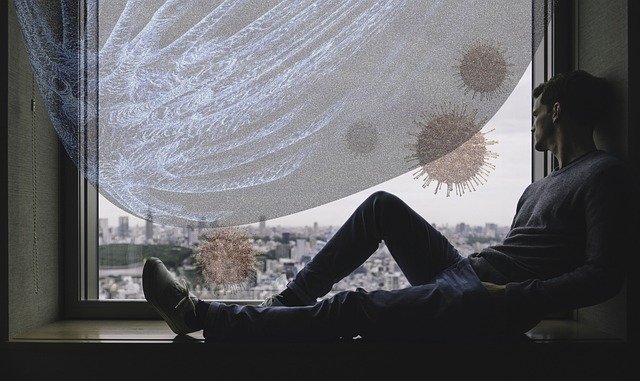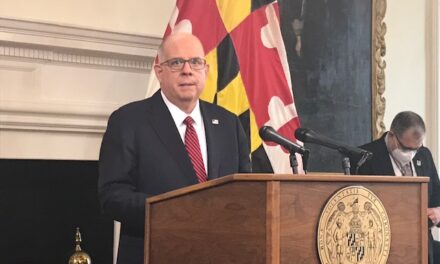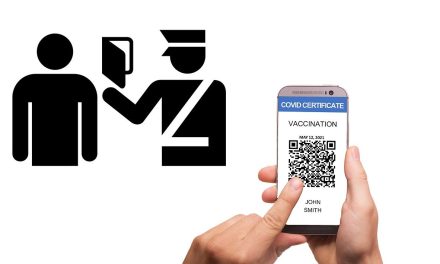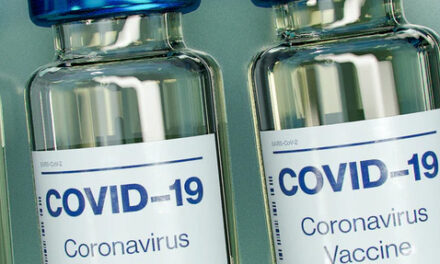The recent outbreak of COVID-19 has gripped the world with apprehension. Our brains are on overdrive. We are constantly dealing with an invisible threat because we don’t know who is infected. Anyone could infect us. We don’t know how bad it will get or how long it will last. It’s a global threat; no community is safe. Many amongst us are reckoning with individual losses, such as illness and death– or loss of employment as a result of economic upheaval–or communal grief as we watch our healthcare, education and economic systems destabilize. All this is changing the way we see and perceive threat.
Princeton’s Angus Deaton, winner of the 2015 Nobel Prize for economics, coined the term “deaths of despair,” referring to fatal consequences associated with unemployment. He blamed the recently increased rates of suicide, drug overdose and alcohol-related liver disease on the changing economic situation. Every 1% increase in unemployment leads to a 3.5 % increase in opioid addiction. With the ongoing pandemic, we are seeing alcohol and drug use on the rise. Because the virus attacks the lungs, it poses a serious threat to those who smoke tobacco or marijuana; aerosols harm the lung and diminish the ability to respond to infection. COVID-19 endangers people with opioid use disorder and methamphetamine use disorders. Having a respiratory disease while abusing opioids increases the risk of overdose, due to diminished lung functioning. Methamphetamine constricts the blood vessels in the lungs, compounding the damage caused by the virus.
The gift of olfaction is one of the joys of life, which most of us take for granted. Food is more than just fuel; it is also one of the greatest pleasures in life. The madeleine memories triggered by food are involuntary. Losing one’s sense of smell and taste—as can occur with COVID-19 can be a huge emotional loss. The American Academy of Otolaryngology-Head and Neck Surgery recently proposed that anosmia (loss of smell) with resultant dysgeusia (change in taste) be added to the list of screening tools for COVID-19.
The link between acute respiratory infections and mental disorders has been known since at least the SARS epidemic a few years ago. A year after that occurred, more than 40% of the survivors had mental problems, even though their physical symptoms had improved. The survivors experienced symptoms related to PTSD, depression, somatoform pain disorder (chronic pain due to psychological factors), and OCD.
It is sometimes necessary to deprive people of their liberty for the wider public good, but this is often contentious. “Quarantine” was first used in Venice in 1127 with regards to leprosy. People who are in the quarantine may experience confusion, anger, boredom, and loneliness. Being quarantined in the company of a household member exhibiting symptoms, such as cough and fever, can worsen anxiety. Akin to stigma once associated with leprosy, COVID-19 has exacerbated xenophobia, hate and exclusion.
The global medical community is experiencing unbearable stress, knowing many COVID-19 patients die alone. Sadly, when patients infected with COVID-19 enters the hospital, dies, and gets transferred to a make-shift morgue, almost no relatives can be with them. Patients, day in and day out, beg to say “goodbye” to their close relatives, while gasping for air. COVID-19 has killed over 100 doctors and nurses around the world. Some healthcare workers have died by suicide. Some have had no time to process emotions due to the escalating number of cases. Some dread acquiring the virus while working in dangerous settings. Some are frightened of having to decide who gets a ventilator or an ICU bed. Some are being asked to live on less money despite increasing work demands. Many are putting the health of their own families at risk, and are being shunned by others for fear they are contagious. All these factors, and others, are emotionally burdening our health care workers.
Stressful times like the present evoke a variety of reactions within us, many of which are natural responses to difficult situations. Displaying resilience, which is the ability to bounce back, cope with adversity, and endure during a difficult situation is ordinary, not extraordinary. For centuries people have regularly demonstrated this ability. Please be cognizant of the fact that the world has survived several notable pandemics, including the Black Death, Spanish flu, and human immunodeficiency virus/acquired immune deficiency syndrome (HIV/AIDS). Using supportive resources to address stress and other hardships is a critical component of resilience.
Psychological first aid (PFA) is a crucial early intervention that focuses on mental health of the affected survivors by providing psychosocial support during outbreaks. The Johns Hopkins PFA tool consists of the ‘RAPID’ model. It is an acronym standing for Reflective listening, such as paraphrasing with empathy; Assessment of the current presentation, primarily assessing cognitive capacity, affective expression, social adaptability, interpersonal resources and readiness for intervention; Psychological triage, prioritizing attending to severe versus mild reactions; Intervention, using cognitive and behavioral interventions to mitigate acute distress; and Disposition, consideration of next steps, including facilitation of access to ongoing care.
Many amongst us develop mental myopia during stressful times, meaning we allow one major facet of today’s reality to occlude our view from the totality of human existence. At this vital moment in history, we can either let the pandemic-induced stress make lyrics of a Pink Floyd song, Time, “shorter of breath and one day closer to death” come true or adopt a stress-is-enhancing mindset, which can have positive consequences related to improved health and work performance.








Recent Comments